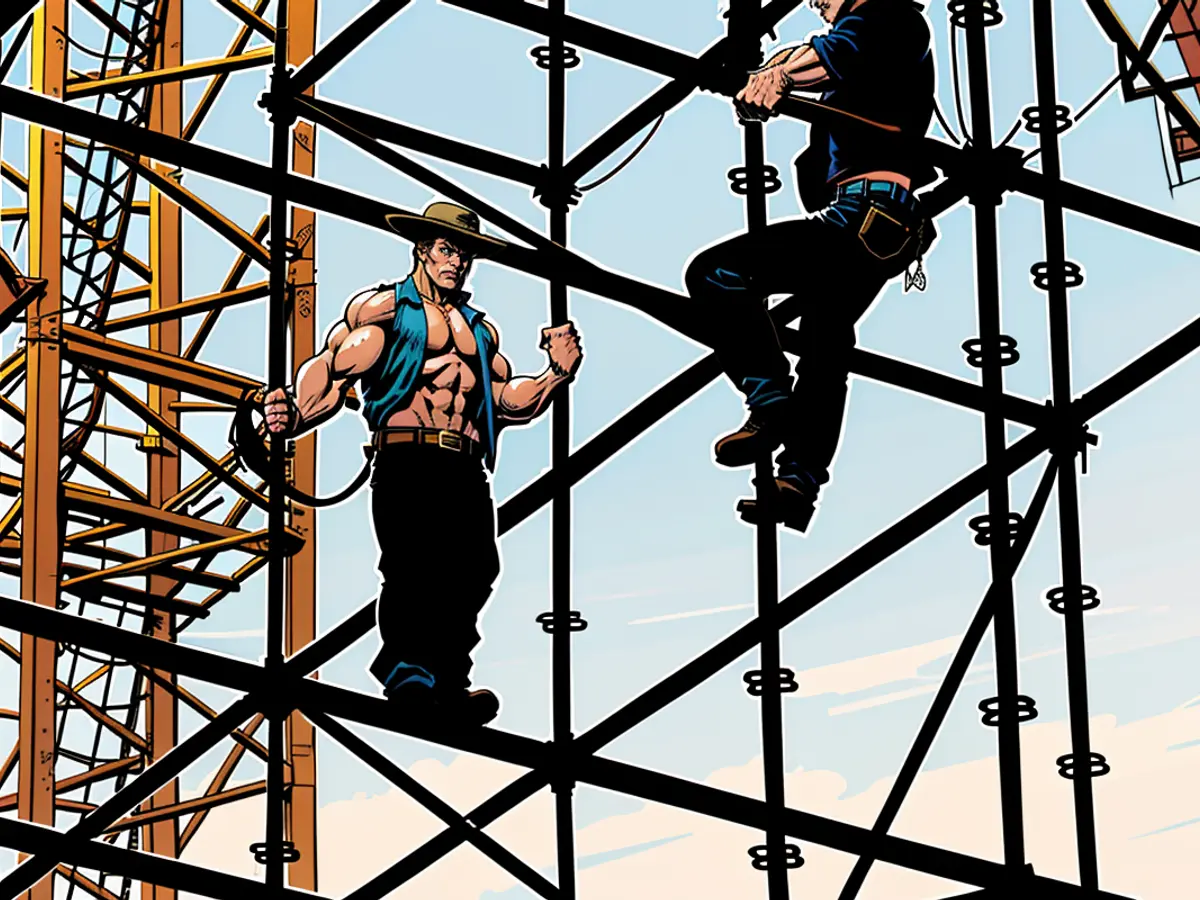Construction firms in Eastern Germany are sounding the alarm over increasing bureaucratic red tape, with a large portion of businesses choosing to skip tender bids due to excessive administrative demands, according to the East German Construction Industry Association (BIVO). A whopping 60% of companies cited bureaucratic challenges as the reason for their decision to forego bid participation, as revealed in BIVO's report titled the "Black Book."
In response, BIVO Managing Director Robert Momberg expressed concerns, stating "The housing shortage and aging infrastructure in eastern Germany indicate that bureaucracy isn't just hindering projects, but also stalling crucial construction capacities." Remarkably, an overwhelming 93% of companies expected the bureaucratic burden to persist over the past five years, a sentiment shared by 82.4% of businesses in 2018, with no decrease in bureaucratic load reported in both years.
BIVO has advocated for regulatory relief measures since 2018, under the motto "3V - Reduce, Simplify, Connect." The association's proposals include streamlining approval procedures, simplifying processes, providing online data, creating uniform statistics, fostering harmonization at the EU level, and digitalizing administrative bodies. However, despite BIVO's vocal calls for reform, the organization hasn't seen much improvement in the face of convoluted bureaucracy.
Ineffective political measures aimed at bureaucracy reduction were highlighted by Momberg, who explained that despite commitments, task forces, and bureaucracy relief laws, the number of regulations and the corresponding costs have continued to rise. The BIVO surveyed its member companies during the first and second quarters of this year, representing more than 20,000 construction workers in Berlin, Brandenburg, Saxony, and Saxony-Anhalt.
Efforts to streamline the German construction sector's bureaucratic procedures include streamlining planning and approval procedures, promoting energy-efficient renovations with tax deductions, and encouraging serial construction. Yet, these initiatives have not yielded significant results due to a complex regulatory environment, cross-party disagreements, historical and cultural factors, and economic and political uncertainty.








